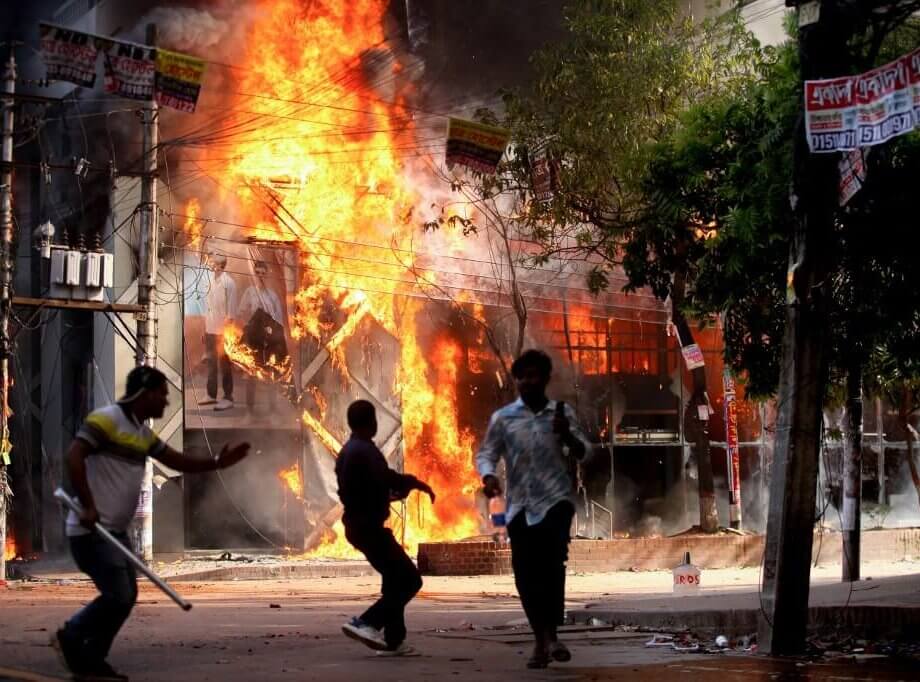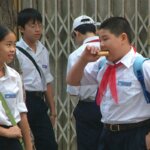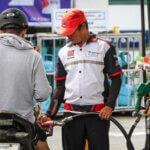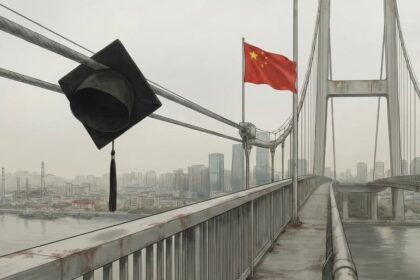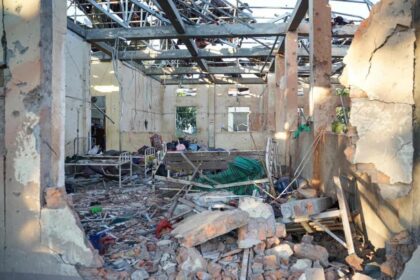Mob Violence in Bangladesh: A Disturbing New Normal
Mob violence in Bangladesh has reached unprecedented levels over the past year, with attacks becoming disturbingly routine and often occurring in full view of law enforcement. Human rights groups, legal experts, and civil society organizations are sounding the alarm about the normalization of vigilante justice, the apparent impunity for perpetrators, and the broader implications for the rule of law and social stability in the country.
According to data from Ain o Salish Kendra (ASK), a leading Bangladeshi human rights organization, at least 179 people were killed in mob attacks between August 2024 and June 2025. This marks the highest monthly average of mob killings in a decade, with 17.9 deaths per month—far surpassing previous years. The surge in violence has been linked to political upheaval, a weakened state apparatus, and a growing sense of lawlessness following the fall of the Awami League government in August 2024.
How Did Mob Violence Become So Widespread?
The escalation of mob violence in Bangladesh is closely tied to the country’s recent political turmoil. The ousting of the Awami League regime in August 2024 created a power vacuum, during which the police force was largely absent for about two weeks. In this period, mob attacks surged, targeting not only alleged criminals but also political opponents, religious minorities, and even bystanders.
Rights groups and analysts point to several factors fueling this trend:
- Delayed or Ineffective Policing: In many cases, police intervention has come too late to prevent harm, and sometimes only after social media outrage forced authorities to act. There are documented instances where law enforcement officers stood by as mobs attacked individuals or property.
- Political Instability: The collapse of the previous government and the uncertainty surrounding the interim administration have undermined public confidence in state institutions, leading some citizens to take the law into their own hands.
- Social Media and Misinformation: Announcements and rumors spread rapidly online, often inciting crowds to gather and act on unverified accusations.
- Historical Precedents: Mob justice is not new in Bangladesh, but the scale and frequency have increased dramatically, with some observers warning that society is becoming desensitized to such violence.
Barrister Jyotirmoy Barua, a senior lawyer of the Supreme Court, highlights the danger of normalization:
“The continuous tolerance of one incident after another has resulted in this situation today.”
High-Profile Incidents and Patterns of Violence
Recent months have seen a series of high-profile mob attacks that illustrate the breadth and brutality of the problem:
- Assault on Former Chief Election Commissioner: On June 22, 2025, a group of men entered the home of former Chief Election Commissioner KM Nurul Huda in Dhaka’s Uttara neighborhood. They assaulted him, put a garland of shoes around his neck, and hit him across the face before handing him over to police. The incident was captured on video and widely circulated online, sparking public outrage.
- Targeting of Political Figures: After the fall of the Awami League, revenge attacks surged against members of the former ruling party. For example, Abdullah Al Masud, a former student leader, was beaten to death in September 2024. His wife, Beauty Ara, recounted the trauma:
“I had just given birth, but I rushed to the morgue to see my husband.”
- Attacks on Religious and Cultural Sites: Over 70 shrines and akhras (religious gathering places) were attacked, vandalized, or looted in August and September 2024. The Chief Adviser’s Press Wing reported 23 arrests related to attacks on at least 40 shrines.
- Suppression of Women’s Sports: Women’s football matches in Rangpur, Dinajpur, and Joypurhat were disrupted by groups claiming the events violated religious norms. Matches were only held after authorities intervened to ensure safety.
- Everyday Vigilantism: Numerous cases involve mobs attacking individuals accused of theft, blasphemy, or other alleged crimes—often without evidence or due process. In one case, a mentally challenged man named Tofazzal Hossain was beaten to death by university students who suspected him of being a thief.
These incidents are not isolated. They reflect a broader pattern in which mob violence is used to settle scores, enforce social norms, or simply vent collective anger—often with deadly consequences.
Why Are Perpetrators Rarely Held Accountable?
One of the most troubling aspects of the current wave of mob violence is the lack of accountability for those involved. Rights groups and legal experts argue that the state’s failure to act swiftly and decisively has emboldened mobs and contributed to a climate of impunity.
Lawyer Sara Hossain, a prominent human rights advocate, criticizes the government’s response:
“We see government inaction in every case. They say that they won’t tolerate it. But what does non-tolerance even mean? The home ministry should take a special initiative given that 179 people have been beaten to death by mobs. Those who were involved in these incidents must be identified. The government should take action now. Otherwise, this won’t stop.”
Official statements from the interim government have repeatedly condemned mob violence and promised action. Home Adviser Jahangir Alam Chowdhury told reporters that while the government had not been able to stop mob violence, the frequency of incidents had been reduced and that law enforcement members would be punished if found negligent. However, when pressed for details on prosecutions, he admitted:
“I don’t know the exact number… But action has been taken against a large number of people.”
Despite these assurances, rights organizations report that few perpetrators are arrested, and even fewer are prosecuted or convicted. In some cases, suspects are released after making promises not to reoffend, or cases are quietly dropped after public attention fades.
Social and Political Consequences
The normalization of mob violence has far-reaching consequences for Bangladeshi society. It undermines the rule of law, erodes trust in public institutions, and creates a climate of fear and uncertainty. The phenomenon also risks deepening political and social divisions, as mobs often target individuals based on political affiliation, religious identity, or social status.
Abu Ahmed Faijul Kabir, a senior member of ASK, warns:
“Lynchings and mob beatings reflect the growing intolerance and radicalism in society.”
International observers have also expressed concern. France 24 reports that rights groups documented three times more mob killings in 2024 than the average of the previous five years. The Manabadhikar Songskriti Foundation and the Human Rights Support Society both recorded over 140 mob-related deaths in 2024 alone.
Some analysts suggest that the surge in mob violence is being used by certain groups to destabilize the interim government or to settle old scores in the absence of a strong central authority. Others point to the risk of desensitization, where repeated exposure to such violence leads the public to accept it as a normal part of life.
What Can Be Done to Stop the Cycle?
Experts and rights advocates agree that urgent action is needed to break the cycle of mob violence and restore public confidence in the justice system. Key recommendations include:
- Swift and Transparent Investigations: Authorities must thoroughly investigate all incidents of mob violence, identify perpetrators, and bring them to justice through fair and transparent legal processes.
- Police Reform and Accountability: The police must be empowered and held accountable for protecting citizens and upholding the rule of law. Calls for the formation of a police commission and meaningful reforms have so far gone unheeded.
- Public Awareness Campaigns: Education and outreach are needed to counter misinformation, promote tolerance, and encourage citizens to report crimes to the authorities rather than taking matters into their own hands.
- Political Leadership: The government and political leaders must send a clear and consistent message that mob violence will not be tolerated under any circumstances, and that all citizens are entitled to due process and protection under the law.
- Support for Victims: Victims and their families need access to legal, medical, and psychological support to recover from the trauma of mob attacks.
As Barrister Barua emphasizes:
“Mob violence, in any form, is a serious criminal offence. Whether it’s directed at someone suspected of being a member of the Shibir, an Awami League member, or thieves and robbers, it remains a crime.”
In Summary
- Mob violence in Bangladesh has surged since August 2024, with at least 179 people killed in less than a year.
- Political instability, ineffective policing, and social media-fueled rumors have contributed to the normalization of vigilante justice.
- High-profile attacks have targeted political figures, religious sites, and ordinary citizens, often with little or no accountability for perpetrators.
- Rights groups and legal experts warn that the state’s failure to act decisively is emboldening mobs and undermining the rule of law.
- Urgent reforms are needed to restore public trust, ensure justice for victims, and prevent further escalation of violence.


